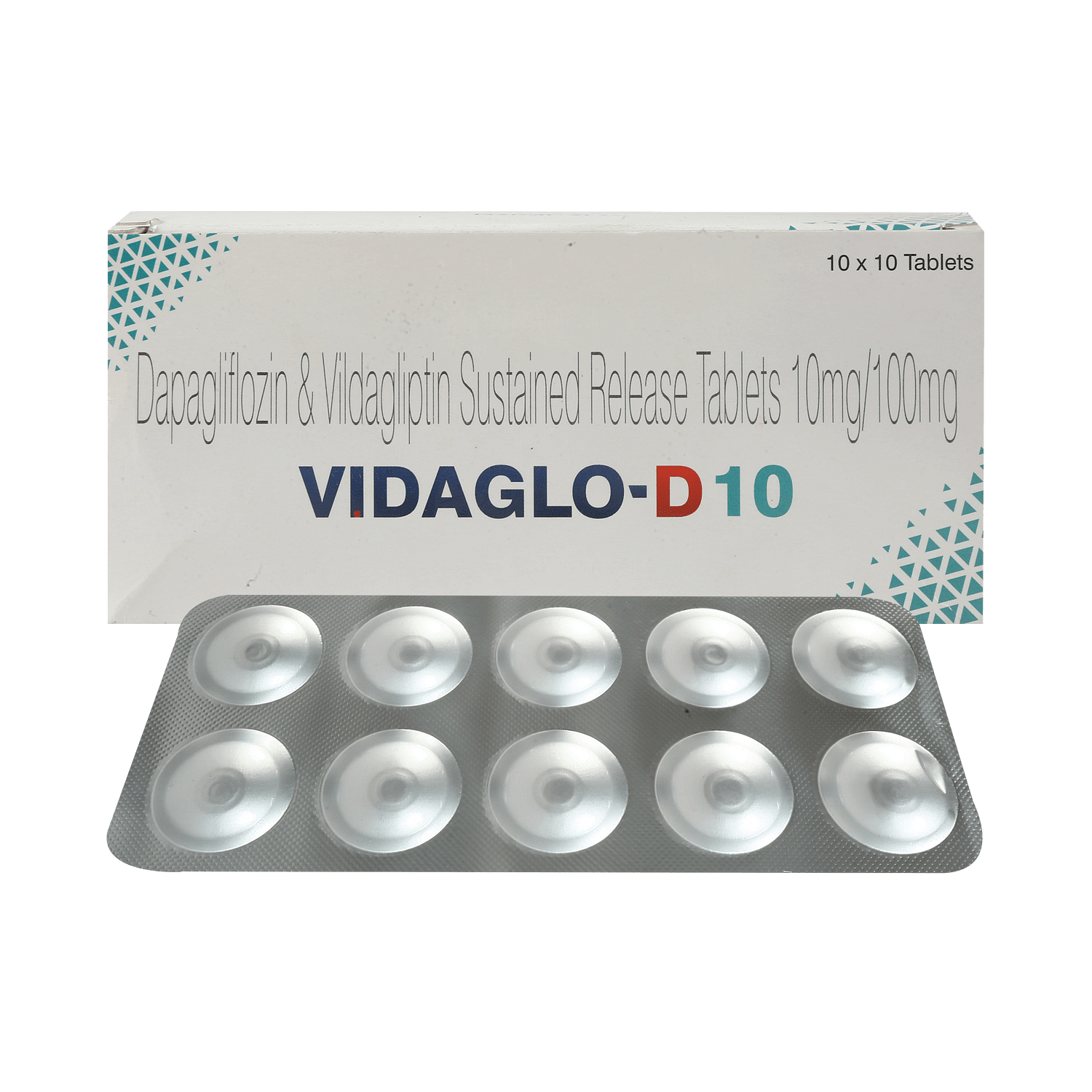
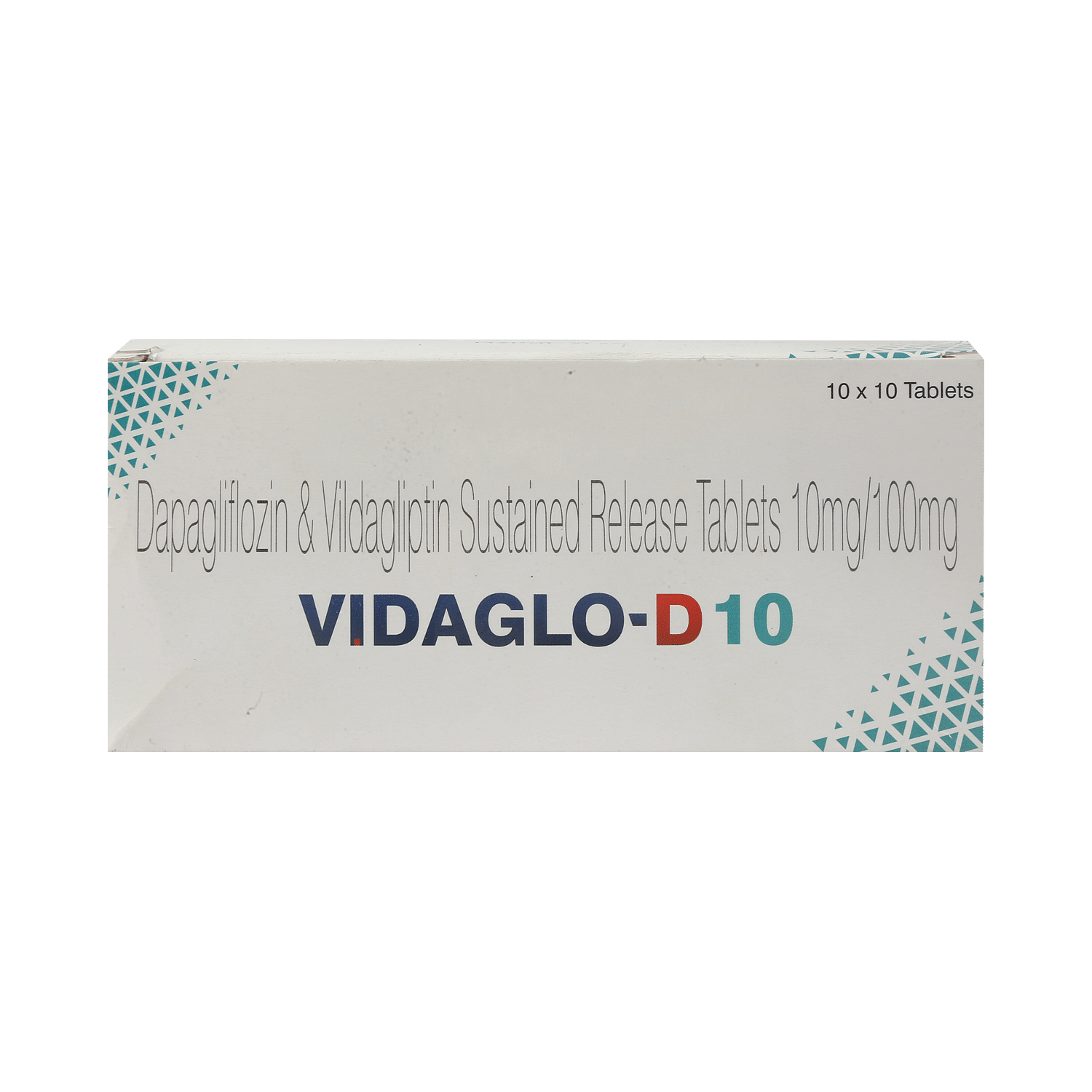
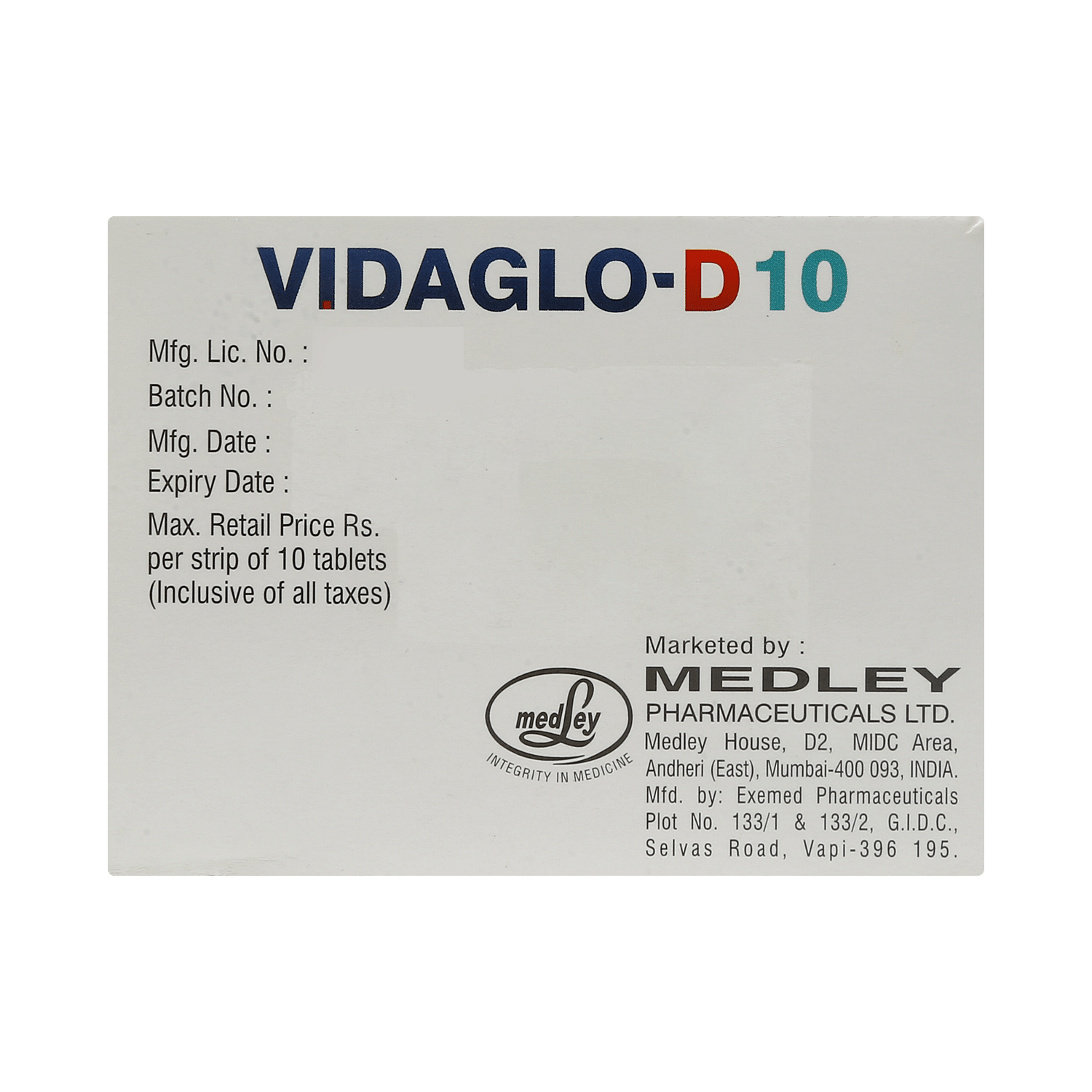
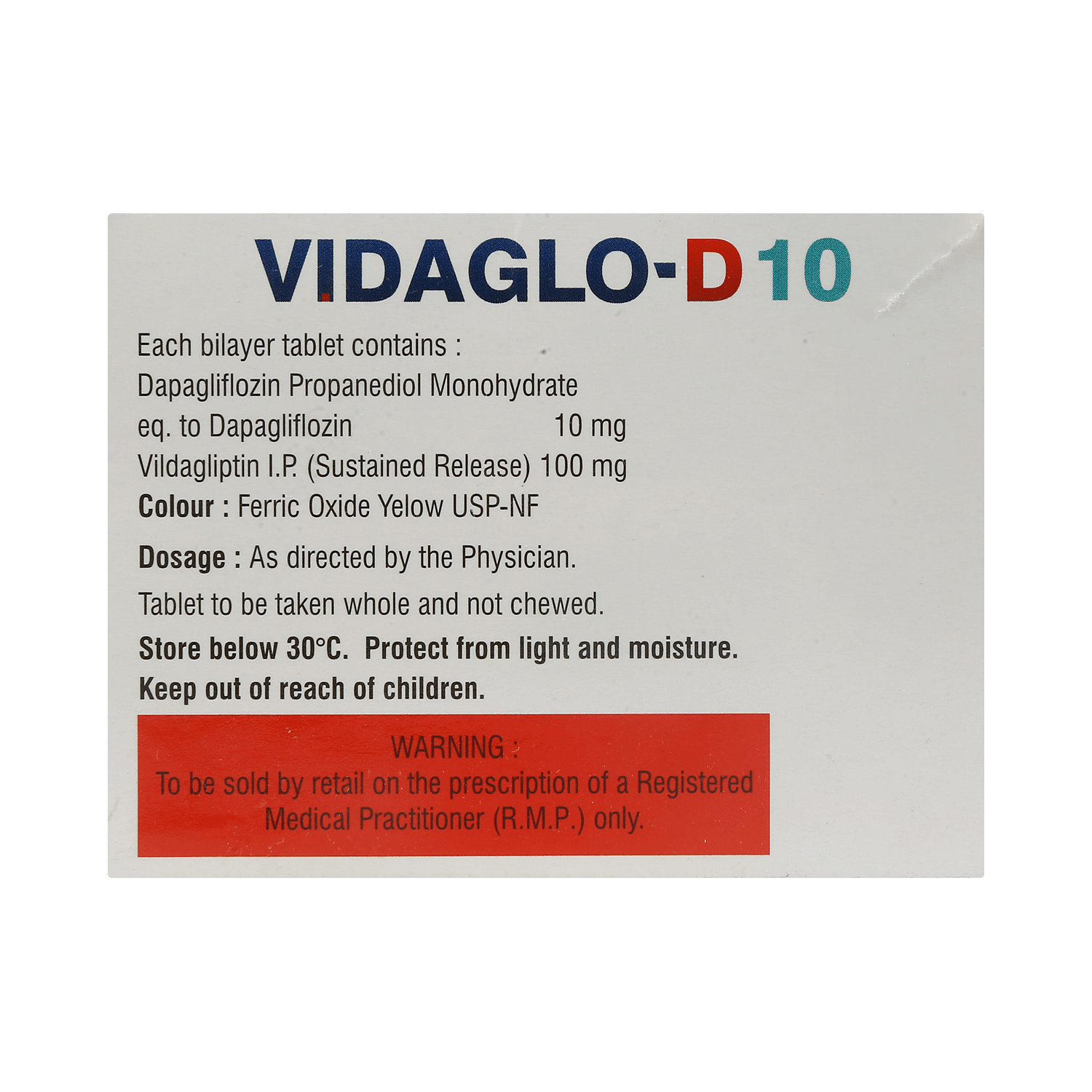
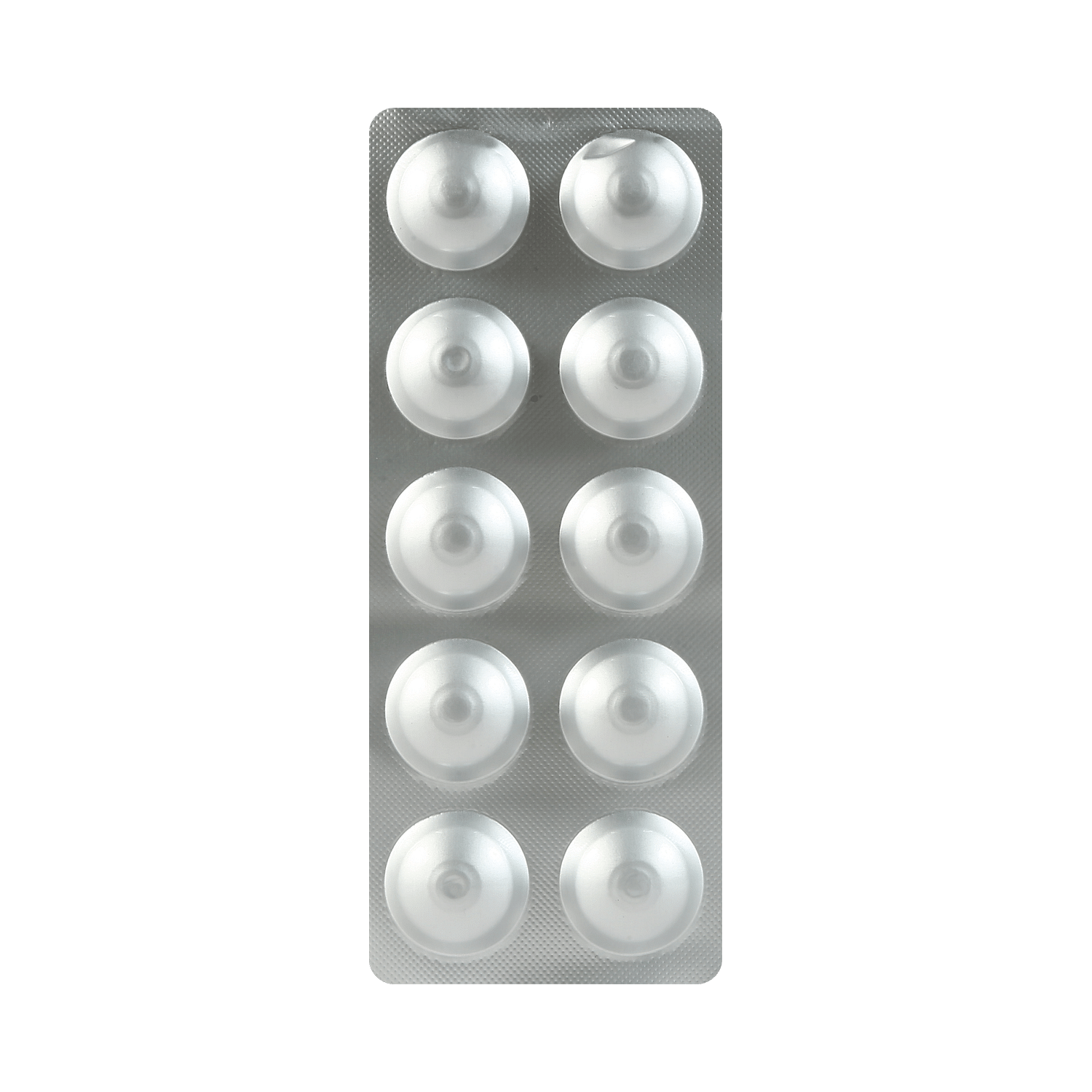
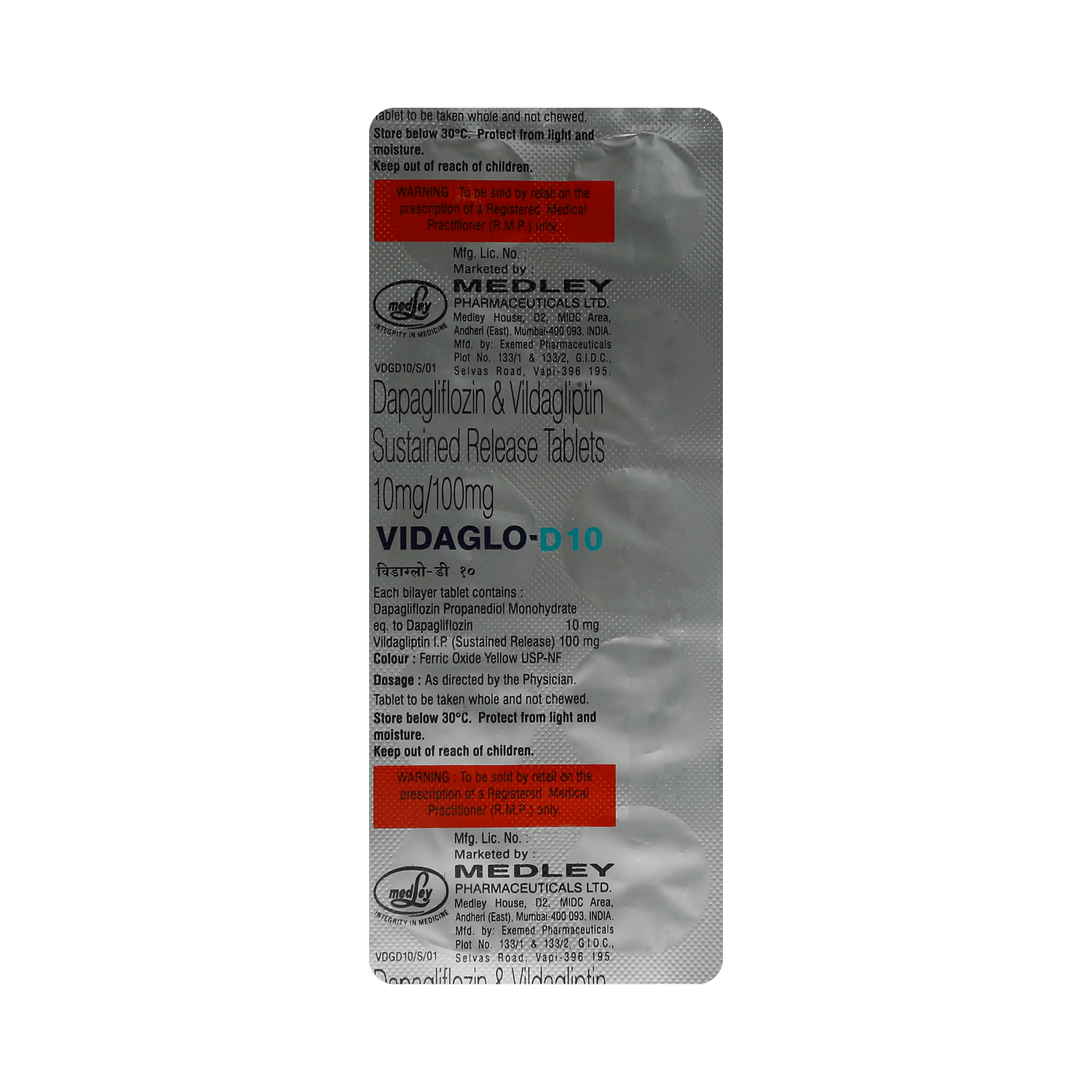
Vidaglo D 10mg/100mg Tablet
Manufacturer
Medley Pharmaceuticals
Salt Composition
Dapagliflozin (10mg) + Vildagliptin (0mg)
Key Information
Short Description
Vidaglo D 10mg/100mg Tablet is a combination medicine that helps control blood sugar levels in adults with type 2 diabetes mellitus.
Dosage Form
Tablet
Introduction
Vidaglo D 10mg/100mg Tablet is a combination medicine that helps control blood sugar levels. This medicine is used together with diet and exercise to improve blood sugar control in adults with type 2 diabetes mellitus. It helps in proper utilization of insulin, thereby lowering the blood sugar level.
Directions for Use
Take this medicine in the dose and duration as advised by your doctor. Swallow it as a whole. Do not chew, crush or break it. Vidaglo D 10mg/100mg Tablet may be taken with or without food, but it is better to take it at a fixed time.
How it works
Vidaglo D 10mg/100mg Tablet is a combination of two antidiabetic medications. Dapagliflozin increases urinary glucose excretion and reduces blood glucose levels. Vildagliptin reduces the amount of glucose produced by the liver by raising insulin levels and decreasing the levels of the glucagon (the hormone that increases blood glucose level).
Quick Tips
Your doctor will monitor your blood sugar levels regularly while taking this medication. Hypoglycemia (low blood sugar level) may occur when taken along with other antidiabetic medicines, or on delaying/skipping a meal. Check your blood sugar levels and have a snack/sugar source for immediate relief. If you get unusually thirsty, pass urine more frequently, and feel tired, you should let your doctor know. These are signs of too much sugar in your blood and your dose may need adjusting. Lifestyle changes like a low-fat and salt diet, exercise, not smoking, and cutting down on the amount of alcohol you usually drink may help this medicine work better.
Related Medicines
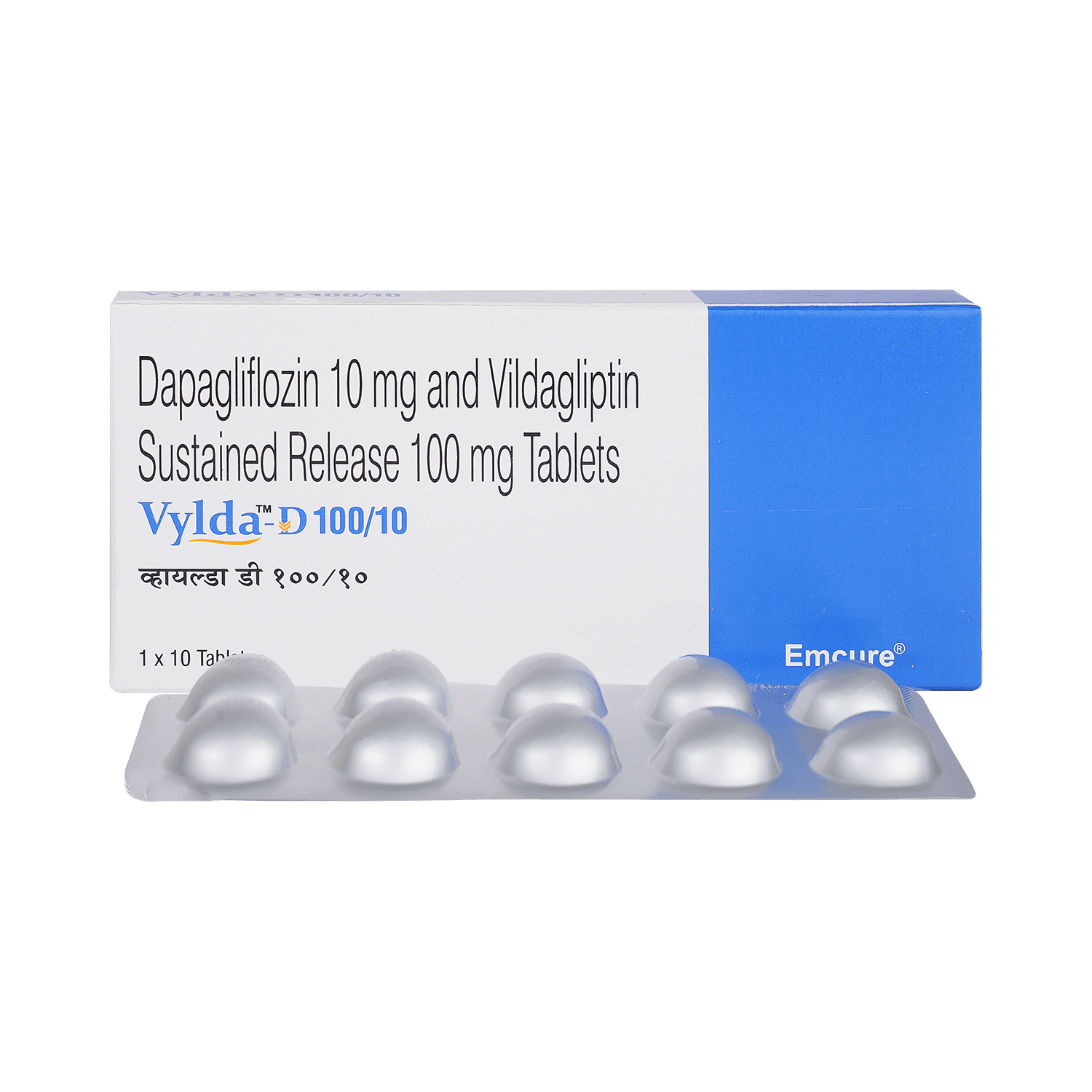
Vylda D 10mg/100mg Tablet

Zukanorm-D10 Tablet
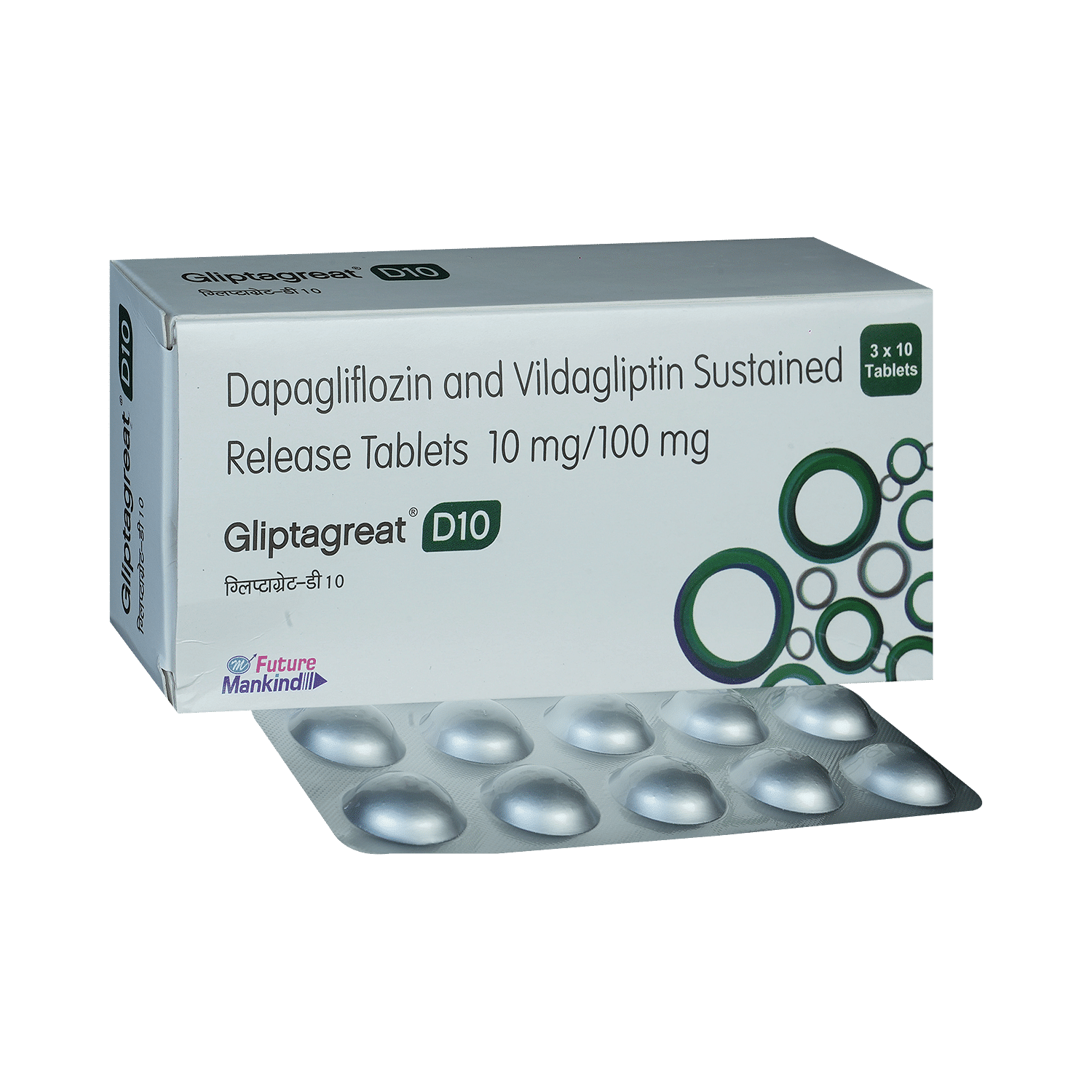
Gliptagreat D 10mg/100mg Tablet
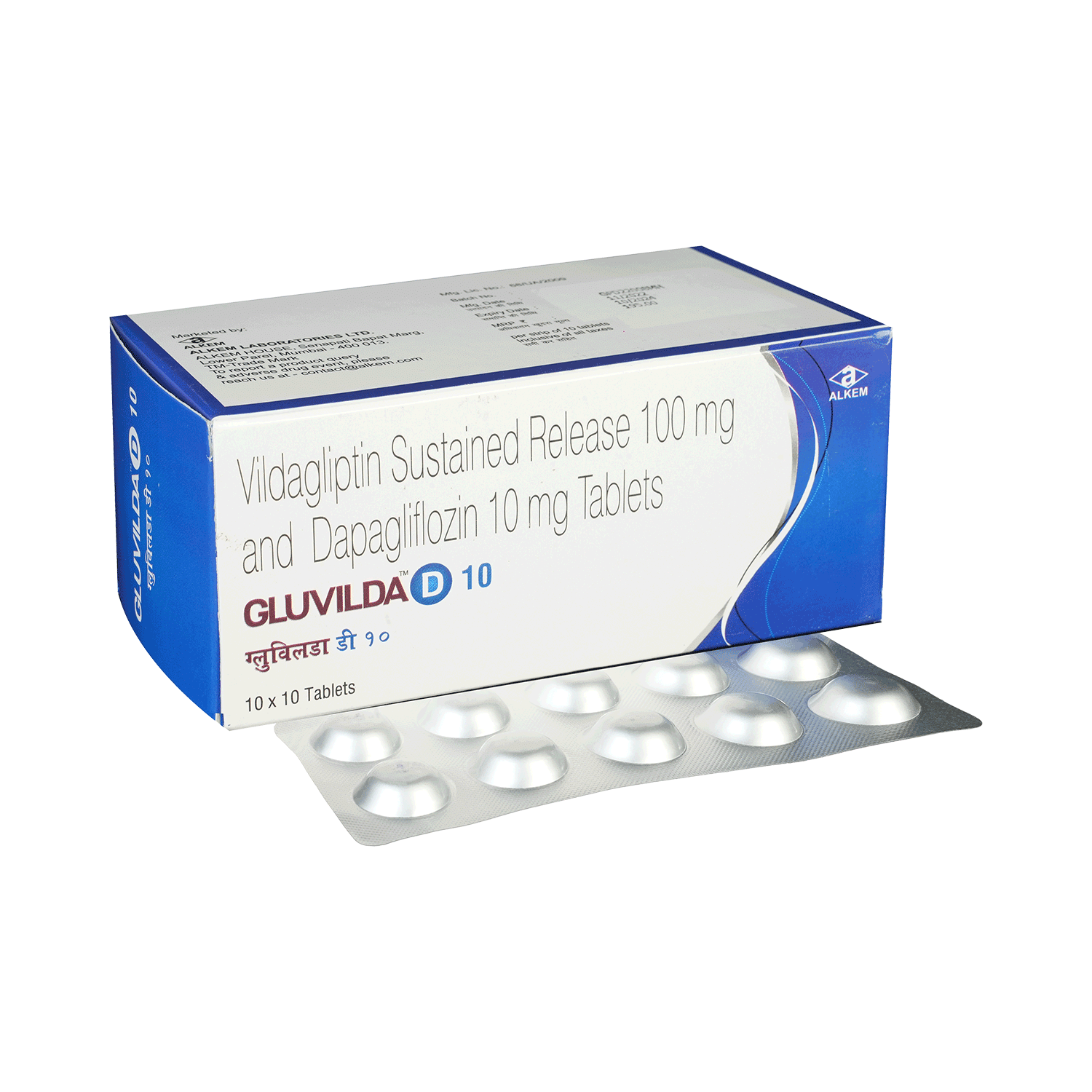
Gluvilda D 10mg/100mg Tablet
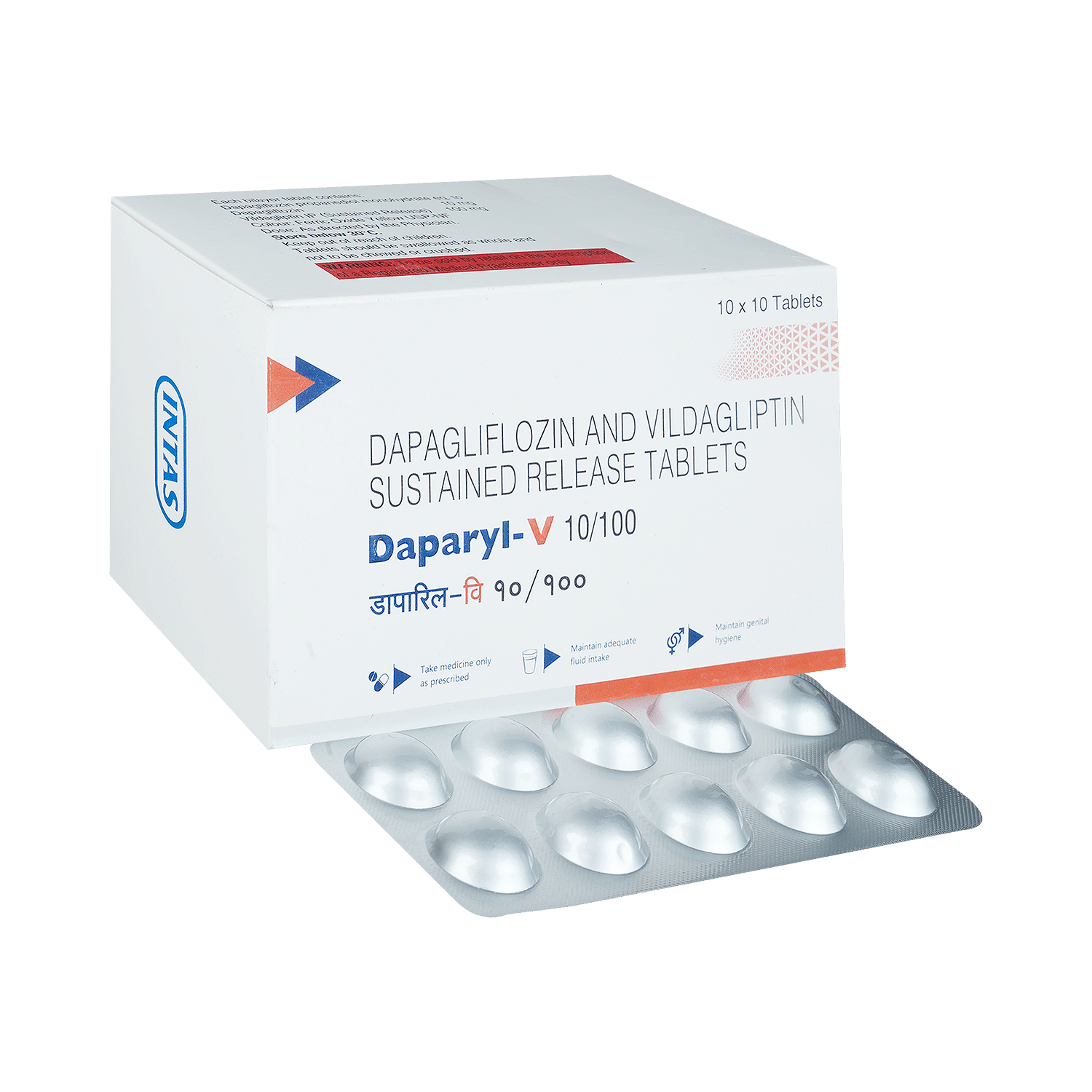
Daparyl V 10mg/100mg Tablet
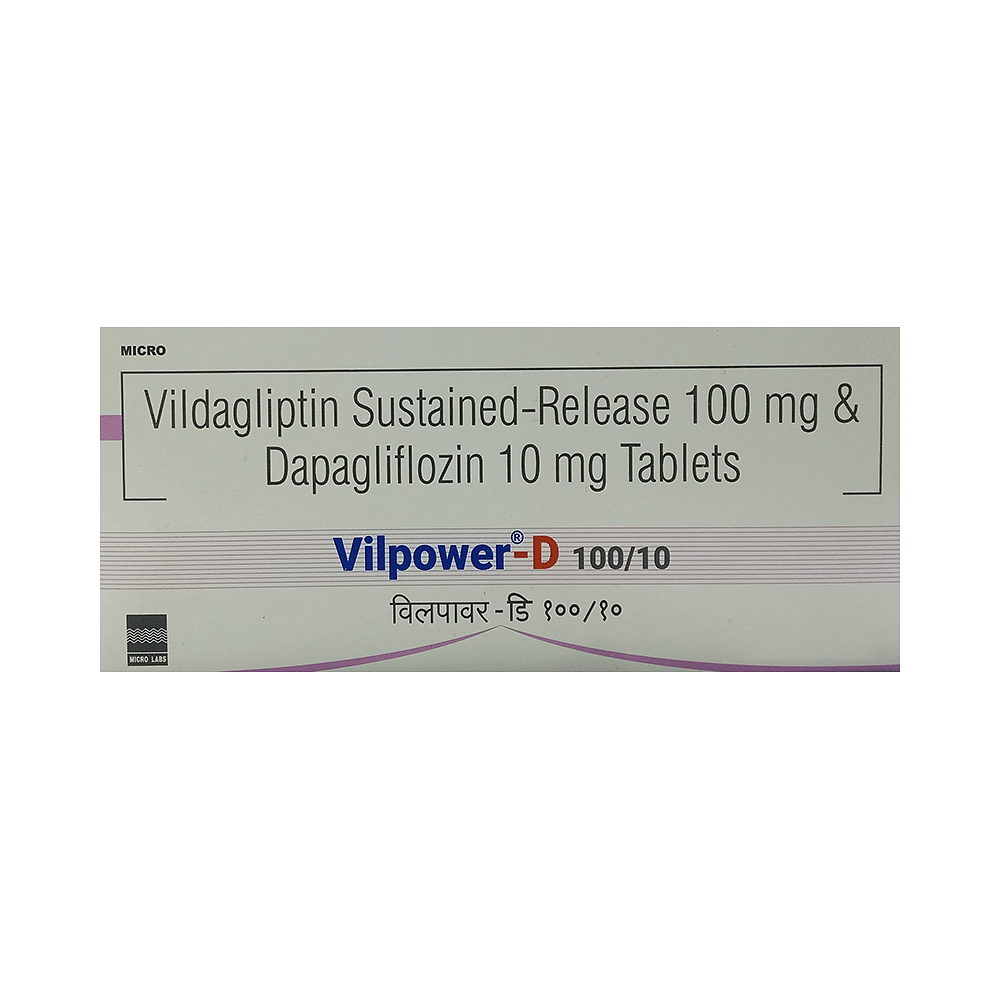
Vilpower-D 100/10 Tablet
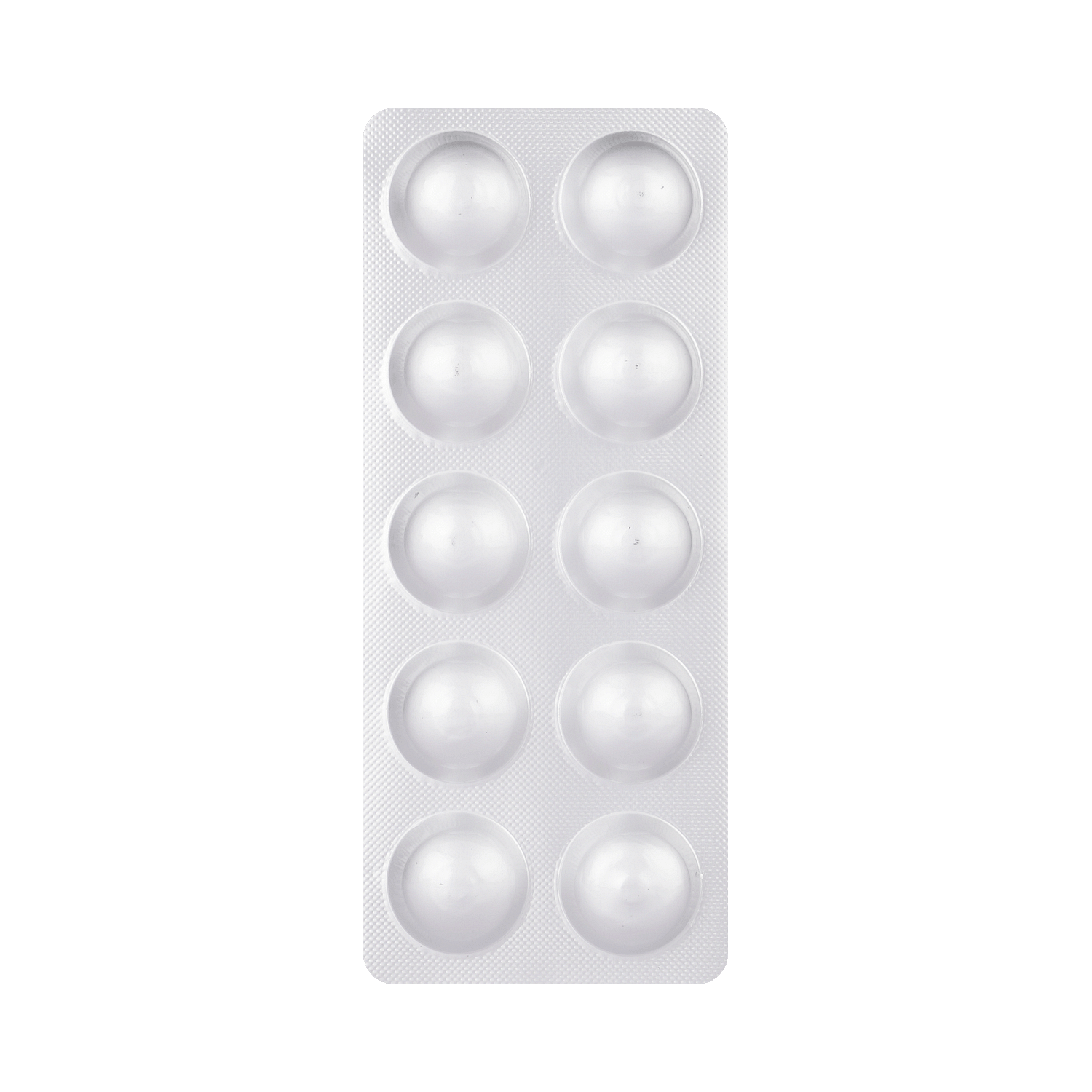
Vildapride-D 100mg/10mg Tablet

Velchemie 10mg/100mg Tablet

Vilatin DP 10/100 Tablet

Dapablis V 10mg/100mg Tablet
Frequently asked questions
Is Vidaglo D 10mg/100mg Tablet safe for use when directed by your doctor?
Yes, Vidaglo D 10mg/100mg Tablet is generally considered safe when used as prescribed. However, it may cause some side effects. To minimize risks, take the medication exactly as directed and inform your doctor of any concerns or issues that arise.
Can Vidaglo D 10mg/100mg Tablet cause dizziness?
Yes, dizziness is a possible side effect of Vidaglo D 10mg/100mg Tablet. If you experience this symptom, sit or lie down until it passes and consider carrying snacks or energy-boosting foods to help alleviate the feeling while traveling.
Should I stop taking Vidaglo D 10mg/100mg Tablet without consulting my doctor?
No, do not discontinue Vidaglo D 10mg/100mg Tablet abruptly. Suddenly stopping this medication may worsen your condition or cause other complications. Inform your doctor about any concerns you have regarding the medication's effectiveness or side effects.
How can I alleviate diarrhea while taking Vidaglo D 10mg/100mg Tablet?
To help with diarrhea, try consuming food items rich in soluble fiber, such as bananas (ripe), oranges, boiled potatoes, white rice, curd, and oatmeal. Additionally, drink plenty of water (8-10 glasses) to prevent dehydration and consider having soups or juice frequently.
Is nausea a common side effect of Vidaglo D 10mg/100mg Tablet?
Yes, nausea is one of the possible side effects associated with this medication. To reduce discomfort, eat smaller meals more frequently, avoid consuming salty, spicy, fried, or fatty foods.
Can people with diabetes consume proteins as part of their diet?
Yes, individuals with diabetes should include a balance of protein-rich foods along with other essential nutrients in their daily diet to provide energy and aid in glucose regulation.
Are artificial sweeteners beneficial for people with diabetes?
No, it is advisable for those with diabetes to limit or avoid artificial sweeteners due to potential side effects. It's better to opt for natural alternatives instead.
Can uncontrolled diabetes lead to kidney failure?
Yes, persistent and untreated diabetes can cause damage to the kidneys, eventually leading to diabetic nephropathy, a condition that may result in kidney failure. Manage your blood sugar levels effectively by following a healthy lifestyle, monitoring sugar levels regularly, taking prescribed medications on time, and making necessary dietary changes.
Can diabetes be fully cured?
While diabetes cannot be fully 'cured,' it can be effectively managed through a combination of lifestyle adjustments, diet, and adherence to prescribed medications. This allows individuals with diabetes to lead healthy lives, minimizing the risk of complications associated with uncontrolled diabetes.


